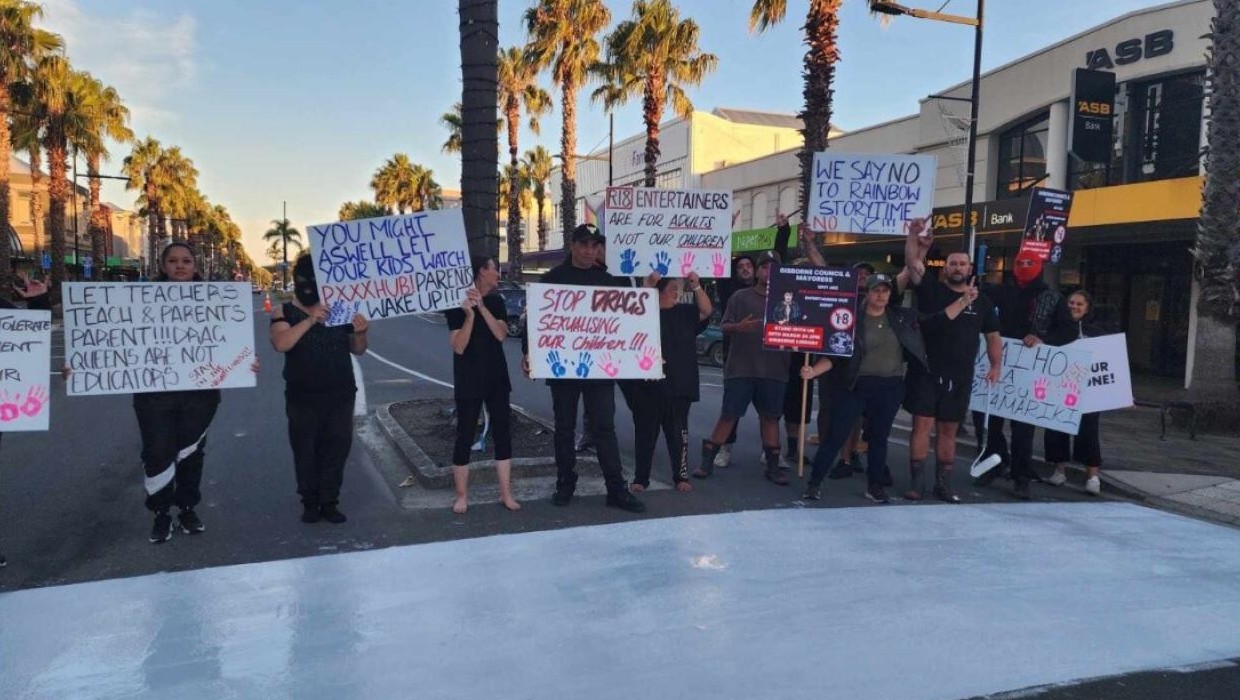One of the hard problems for the new right to grapple with is how to turn dissent and protest into real political victories. Curtis Yarvin, one of the key neo-reactionary (NRx) thinkers that makes up a key component of the "new" or "dissident" right has defined a victory as such:
"A strategic victory is a victory that makes other victories possible."
When looking at events this is important, because failing to secure a victory with protest often means future victories become harder. If the government develops new tools of oppression to crush your movement then you are not winning. A clear contrast could be made between the Wellington Protests and the Ottawa Protests during the era of COVID tyranny. The protests in both places did not result in a direct accomplishment of their aims. Here in New Zealand many of the protesters secured strategic avenues to pursue the next victories. In Ottowa, the protesters were crushed, prosecuted, and debanked.
The vandals who destroyed the Treaty of Waitangi exhibition at Te Papa secured an outright victory with the museum curators (who are ideological allies) using the destruction to accelerate a change in the exhibition that fitted their common anti-white goals: the complete re-writing of New Zealand's history and destruction of our British heritage.
In a rather unexpected disruptive protest play from Brian Tamaki, nearly three transvestite events in libraries were cancelled and two street pride displays were painted over. After years of biassed policing and low levels of left-wing violence, there is a refreshing appetite among the right to do something different than what we usually do (i.e. nothing). It may be a little messy, but it raises the stakes somewhat. New Zealand domestic politics, and policing, both use a strategy to push down the paths of least resistance. The resistance that far left extremists are used to putting up has taken them decades to build. COVID tyranny has proved to be somewhat of an accelerant to the right in terms of willingness to put up resistance. Arresting and imprisoning Brian Tamaki may yet be one of the moves NZ Police will regret a great deal.
Of course, to translate these culture war flashpoints into strategic victories remains an obstacle. If Destiny Church members are prosecuted and the resistance stalls then all these victories will be less than hollow: they will have moved the needle backwards.
While the coalition parties are very shy (afraid even) to stand up and provide pushback to the rainbow mafia, there are avenues to force their hand. Rainbow events are controlled by local councils. That means local councillors can provide workable stop gaps. The protests on the streets could be used as pressure inside the council chambers. That only if you have your men and women on the inside, strategically voted in during local elections. The NZTA likewise could act against rainbow crossings (in 2019 they threatened to remove the Wellington one) and as of right now conservatives are in control of the NZTA via Simon Bridges and Simeon Brown. Currently neither have the spine to do anything, much less the willingness to burn political capital. They're too busy building roads that the next left-wing government can vandalise with the symbols of the pride movement.
This is where activists like Brian Tamakai and Bob McCoskrie can provide pressure. Sufficient lobbying combined with grassroots resistance on the ground can be coupled with political capital for strategic victories. Each making the next one easier. As the mainstream media bleeds out and audiences fracture, the tools that the left has to use against conservative ministers will decrease.
In the political sphere both David Seymour and Winston Peters are hinting they're always on the lookout for more political leverage.
Seymour responded with criticism of Tamaki by deflecting to the left with an "I told you so" tactic. The left isn't going to abandon their methods and Seymour understands that having groups far to the right of him providing effective agitation is advantageous to him personally.
Peters took a more direct route, suggesting in response to transparent police partisanship that the real 'hate crime' was the vandalising of the Treaty at Te Papa.
I care not for the methods, only that we remember the maxim put forward by Yarvin: a victory is anything that makes the next victory possible. That's the kind of thinking which has been lacking in the long defeat conservatives have been fighting in the culture war.
